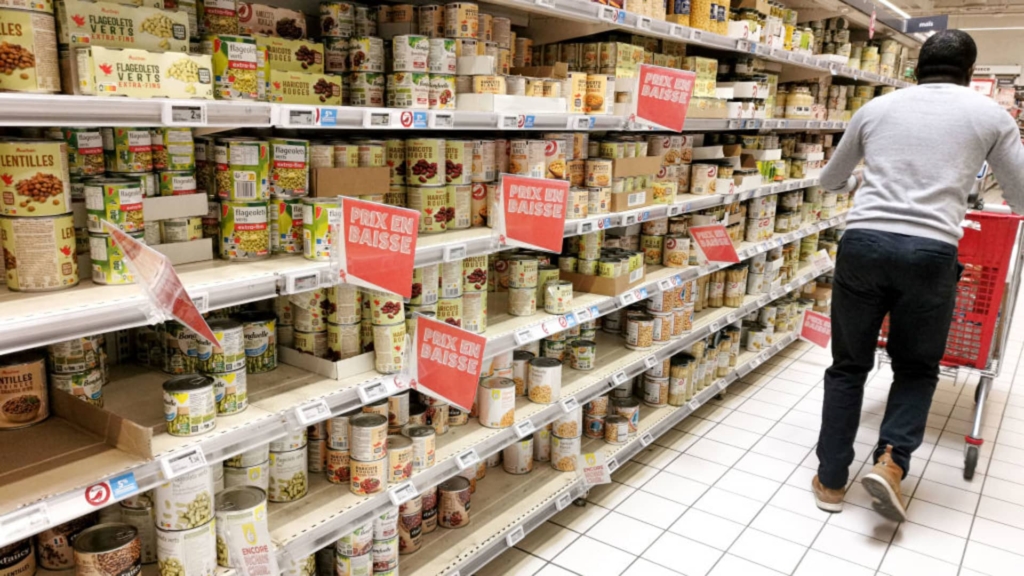Inflation in the Eurozone has decreased to 2.2% in March, as reported by Eurostat on Tuesday. This figure aligns with expectations and is a slight decline from February’s final reading of 2.3%.
Core inflation, which excludes volatile categories such as food and energy, also saw a decrease, sliding from 2.6% in February to 2.4% in March. Meanwhile, services inflation, which had remained stubbornly around the 4% threshold, dropped to 3.4% from 3.7% in the previous month.
Preliminary data indicated that inflation in March was lower than anticipated across various significant Eurozone economies, with Germany reporting a figure of 2.3% and Spain experiencing a decrease to 2.2%. France maintained an unchanged rate of 0.9%.
ECB Decision on the Horizon
The recent inflation figures, harmonized for comparability across the Euro area, have heightened expectations for a potential 25-basis-point interest rate cut by the European Central Bank (ECB) during its upcoming meeting on April 17. Market assessments following the inflation data suggest an approximate 80% probability of this move, as indicated by LSEG data.
The decline in services inflation has particularly bolstered the likelihood of an ECB rate adjustment, according to Jack Allen-Reynolds, deputy chief euro zone economist at Capital Economics. He remarked in his Tuesday note that the drop, along with indications of further declines and persistent weakness in recent activity surveys, is likely to lead the ECB to cut rates by 25 basis points later this month.
Additionally, data released on Tuesday revealed that the seasonally adjusted unemployment rate in the Euro area fell to 6.1% in February, continuing its recent downward trajectory. This figure was lower than the 6.2% that economists polled by Reuters had predicted would remain unchanged.
Interest rate decreases generally encourage falling unemployment rates, as businesses tend to increase labor expenditures when borrowing costs are low. Since commencing its rate cuts last June, the ECB has reduced its key rate—the deposit facility rate—from 4% to 2.5%.
Tariff Uncertainties Loom
The European Union is braced for the implementation of tariffs from the U.S. administration under Donald Trump, set to take effect later this week. This includes a 25% tariff on imported vehicles.
While the full ramifications of these tariffs and potential retaliatory actions remain uncertain, many economists have cautioned that their outcomes could be inflationary. Bert Colijn, chief Netherlands economist at ING, noted that the exact influence of U.S. tariff policies on inflation remains ambiguous, suggesting that they could also open pathways to deflationary trends.
“U.S. tariffs may exert deflationary pressures on the Eurozone market by dampening exports and stalling growth,” Colijn explained, adding that these policies could increase the availability of goods in the Eurozone.
The European Union’s response to these tariffs will play a crucial role in determining the economic consequences of this trade conflict. Colijn indicated that retaliatory actions from the European Commission would likely contribute to upward pressure on Eurozone inflation, effectively serving as a domestic tax that consumers will partially bear.


























